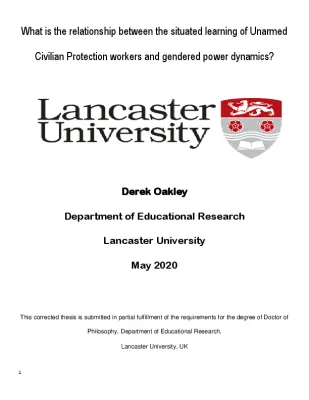Abstract
This study used a mixed methods, grounded theory approach to investigate the situated learning of Unarmed Civilian Protection (UCP) workers and its relationship to hegemonic gender regimes. It reviews the everyday situated learning of UCP workers in the context of and structures gender and race. UCP is understood as a unique ‘Community of Practice’ subordinate to and nested within the overarching humanitarian infrastructure. The definition and contestation of UCP by different workers and related, fluid dynamics of complicity with and resistance to structural power are explored.
